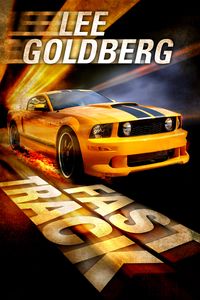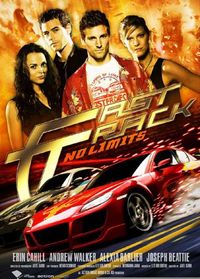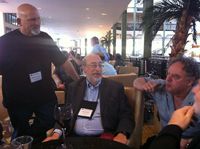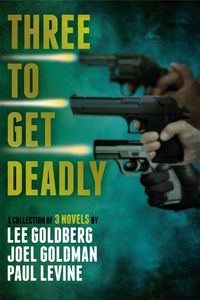 I've had so much commercial and critical success with my ebook McGRAVE, which was based on an unproduced pilot I wrote for Sony International Television, that I've decided to write novelizations of all of my pilot and TV movie scripts, produced and unproduced, on which I retained the publishing rights.
I've had so much commercial and critical success with my ebook McGRAVE, which was based on an unproduced pilot I wrote for Sony International Television, that I've decided to write novelizations of all of my pilot and TV movie scripts, produced and unproduced, on which I retained the publishing rights.
So during a brief hiatus between books in 2012, I novelized my first draft screenplay for FAST TRACK, the action movie I wrote and produced for Action Concept and ProSeiben in Berlin a few years ago.
FAST TRACK was a two-hour pilot for an American-style action series that would have been shot in English and German with a cast of American, Canadian, British, French and German actors and followed the lives of four young people in the world of illegal street racing. ProSeiben commissioned the pilot movie and scripts for six episodes. Making the movie, which was directed by Axel Sand and starred Erin Cahill, Andrew Walker, Alexia Barlier and Joseph Beattie, was one of the highlights of my career and the friendships I made during the production continue to this day. It was a fantastic experience professionally, creatively and personally (if you watch the "Making of Fast Track" documentary, I think you'll see why). Unfortunately, the series didn't happen…but perhaps because I've remained close to many of the actors, the characters have stayed fresh in my mind. I haven't been able to let go of them, and have tried to resurrect the project several times over the years (we came close with Cartoon Network, but it fell through).
So I approached the opportunty to revisit the FAST TRACK world with enthusiasm. I used the first draft screenplay as the basis for the book because it had some action elements that we either had to omit or re-imagine due to budget/scheduling/location issues and a prologue that was shot, but that I ultimately cut, in the final edit (I've always regretted cutting the prologue).
The film took place in Berlin, but I decided the novella would work better in the United States, so that required some rethinking of the characters' backstories and reworking some of the scenes. I also did a complete update on the cars, with the help of Sam Barer, the same technical consultant we used on the movie.

I had so much fun writing the FAST TRACK novella that if it does well, I may revisit the characters in sequels based on the twelve episode ideas that I came up with during the development of the pilot (though the stories,which I haven't looked at in years, may have been so Berlin/Europe-centered that they may not work in the new, Los Angeles setting).
But this experience has definitely spurred me on to take a look at my other scripts. I don't know yet which one I will tackle during my next short hiatus.
If you'd like to know more about FAST TRACK, here are some links:
The Making of Fast Track documentary
My Blogs About the Production, Post-Production and Promotion of Fast Track




![IMG_1121[1] IMG_1121[1]](https://leegoldberg.com/wp-content/uploads/2012/04/6a00d8341c669c53ef0167648f0033970b-200wi.jpg)
![IMG_1130[1] IMG_1130[1]](https://leegoldberg.com/wp-content/uploads/2012/04/6a00d8341c669c53ef0167648f017d970b-200wi.jpg)

